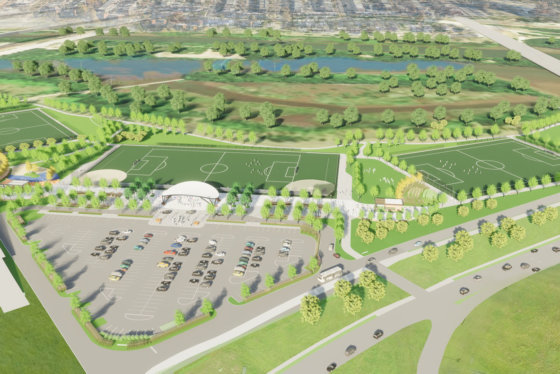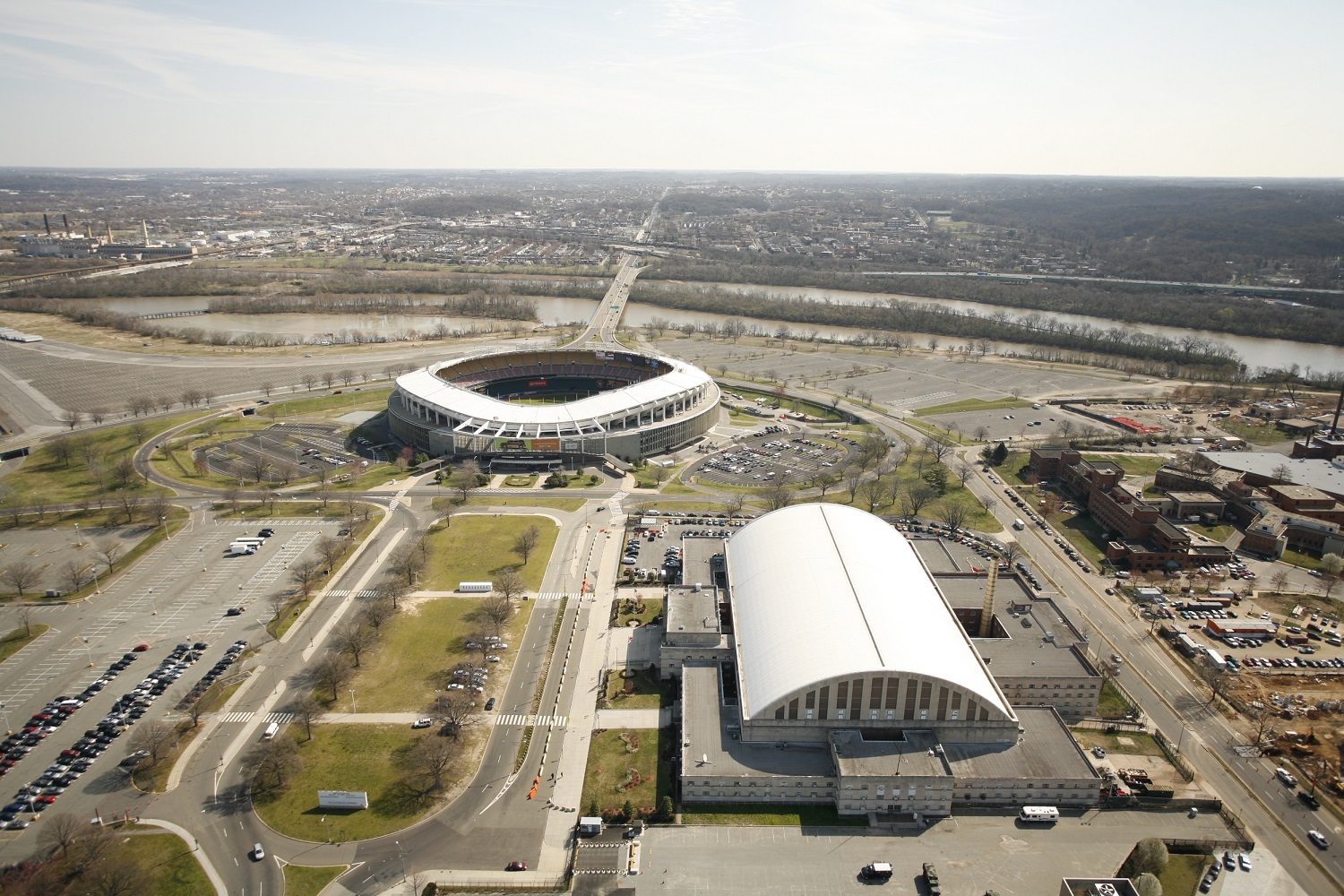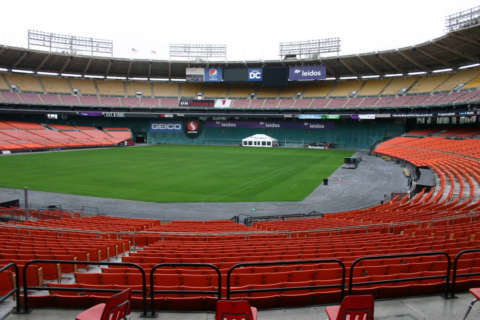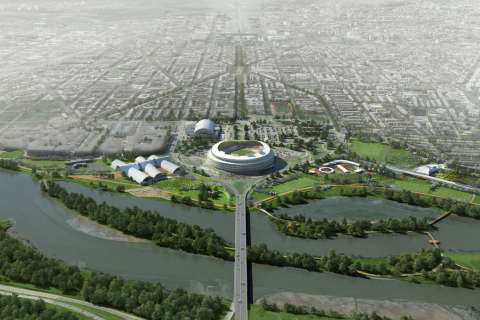WASHINGTON — In a vacuum, it seems easy: Why wouldn’t you want the NFL back in Washington?
It’s a point of civic pride, to have your sports team play within your city’s limits; for the caravan of fans from around the suburbs and exurbs and beyond to migrate to the hub for which the team is named. It is, after all, where the NFL used to be — in Washington, the city with which they still associate.
But the reality is much more complex, and the many machinations required to bring the NFL back to D.C. carry a steep price tag of financial, opportunity and social costs that seem increasingly likely to far outweigh any benefits, and that have divided local politicians.
Mayor Muriel Bowser has been reportedly trying to bring NFL football back to D.C., specifically to the RFK site the Burgundy and Gold once called home. In early December, The Washington Post reported that the club was working with both the Mayor’s office as well as Republican Congressional members to fit a provision into the federal spending bill that would loosen the laws on the way the land is intended to be used, paving the way for a potential NFL stadium on site.
That initial effort appears to have stalled for now.
“There is no deal, there’s no outlined plan, and there’s no agreement between the team and the District,” Bowser’s Chief of Staff John Falcicchio told WTOP. “What there is, is a hope that the District is able to attain the land, either through a transfer or a long-term lease, and be able to figure out with the community what the long-term vision for the RFK campus is.”
The team did not directly answer questions regarding the nature of any discussions with either local or federal officials, or any language added to the Congressional spending bill.
“We have a very good relationship with all of our local leaders, and yes we talk to all of them on a regular basis,” a team spokesperson told WTOP without addressing specifics of any conversations regarding a new stadium deal, beyond. “Our goal is to create the best stadium experience in all of sports.”
Pretty much all District officials seem to be in agreement on that one basic point: That they’d like for the city to gain control over the land. It currently belongs to the National Park Service and is zoned specifically for recreational activities, precluding any residential or commercial development. If the District can acquire control, or extend its current lease with different provisions (as WAMU reported was the initial effort), city leaders would have the chance to change those rules. It’s a matter of how they change them, and the resulting plans, that are the matter of contention.
It’s been close to three years since Events DC, which has been in charge of the RFK redevelopment, unveiled a five-part plan for the site, and more than two years since they detailed a nearly $500 million project, including multipurpose playing fields set to come online this spring, a food market hall, a 350,000-square-foot sports and recreation complex, new pedestrian bridges connecting the east side of the Anacostia River through Kingman and Heritage islands, and a lasting memorial to Robert F. Kennedy. There were multiple iterations of the plan that included the possibility of an anchor stadium, possibly an NFL stadium, the door left open as to whether or not there would be an anchor tenant.
Those plans were the result of a painstaking learning process, in which community input drastically changed the final designs. Everything past the fields is on hold for now, pending a more permanent resolution of the land rights or an extension on the lease, but is not dependent on a resolution in regard to an NFL stadium.
‘Almost nothing worse that you can do’
Some of the stadium’s biggest opponents are not necessarily those you might expect. Councilmember David Grosso (I — At Large) worked under former D.C. Councilmember Sharon Ambrose as a clerk on D.C.’s Economic Development Committee, where he was part of the team that helped pave the way for baseball’s return to the District. Ward 6 Councilmember Charles Allen just helped oversee the completion of another major sporting venue in his ward, with the completion of Audi Field last summer.
The mayor’s office described any potential NFL stadium project as a D.C. United-type deal, in which the city would provide the land and build the infrastructure, while the team would build the stadium. But both Allen and Grosso are of the mind that an NFL stadium on the RFK site is bad for both the city and the local residents, and provides none of the economic boost often credited to projects like these.
“It’s just not a good use of our land and our resources and I think it’s a really wasted opportunity for what our city truly needs,” Allen told WTOP. “We’re in an affordable housing crisis in our city, and here we have an opportunity to extend our neighborhoods down to the Anacostia River with new housing.”
“I also don’t think that a football stadium is a good investment for the jurisdiction,” Grosso told WTOP. “I’ve read some studies on other cities — it doesn’t generate the type of economic impact that you would like to see from an investment this big. So I don’t support the city spending the kind of money it’s going to take, even if it’s just the infrastructure.”
Neil deMause is the author of “Field of Schemes” and an expert on the costs of sports stadium deals. While he believes most stadium deals don’t provide nearly the economic benefit many claim, he believes NFL stadiums are easily the worst.
“There’s almost nothing worse that you can do with a plot of land than devote it to an NFL stadium,” he told WTOP. “It’s a crime against urban planning to be using (the RFK site) for something that is in use so few days out of the year.”
Aside from just eight regular season games, two preseason games, and any possible home playoff games, there are precious few non-NFL events held in NFL stadiums each year, something especially true for FedEx Field. The stadium was home to fewer than 10 listed outside concerts/events last year, and the only upcoming events on the public calendar are the Broccoli City Festival in late April and The Rolling Stones tour stop at the end of May.
And while the massive land allocation for a 60,000-seat stadium and the parking to go with it are not as big of a concern in a place such as Arlington, Texas, where space is plentiful, it’s far more of a consideration in a dense city like D.C.
“It’s almost less about who’s paying the construction costs and more about the land and development rights, because land and development rights are so hard to come by in a place like D.C.,” said deMause.
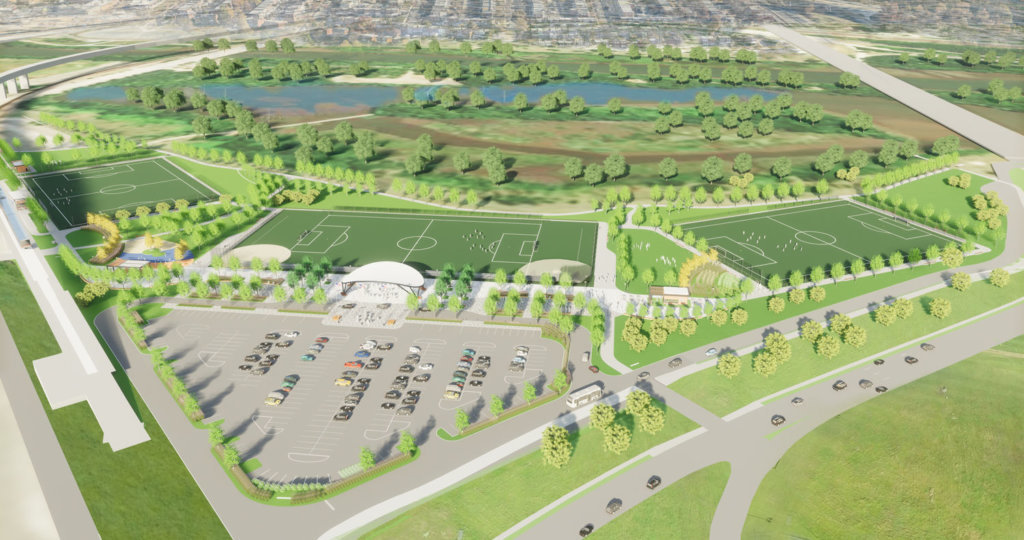
‘Not a whole lot of openness’
This would hardly have been the first time a seemingly unrelated provision was tacked onto a massive federal spending bill. Just last year, Major League Baseball lobbied to get a provision to keep minor leaguers from being able to earn overtime sneaked into the omnibus bill, after the measure had been so unpopular as a piece of independent legislation that one of its original sponsors removed themselves from it and it died on arrival in Congress.
The St. Elizabeths Hospital redevelopment into what is now the Entertainment & Sports Arena — home to the Washington Mystics, Capital City Go-Go, and the Wizards’ practice courts — faced similar scrutiny due to lack of transparency throughout the process. Eventually, thanks to public pressure from Councilmember Elissa Silverman (D — At Large), the city held a public hearing for community feedback. That’s been one of the biggest drivers in keeping the RFK redevelopment process as open and transparent as possible.
“Events DC has been doing that in the Hill East community. They have had public meetings, they were very responsive,” said Grosso.
But he’s been discouraged by the lack of transparency in the latest dealings.
“There’s not a whole lot of openness. This is always done kind of behind the scenes, and I think that frustrates the public. I think it certainly frustrates a lot of us,” he said.
- Greatest moments in RFK History (Photos)
- Best RFK baseball moments from Senators to Nats
- The Beatles, The Stones, and other best RFK entertainment moments
- Chanting fans, flying seat cushions — best Skins moments
- ‘The world’s game’ — best RFK soccer moments
A petition entitled “Hail No RFK” specifically drafted to reject the idea of an NFL stadium on the RFK site is nearing 4,000 signatures. A quarterly public meeting scheduled for last week to update on the community on the ongoing renovation was expected to be dominated by discussion of the NFL stadium reports, but it was canceled due to the winter storm that dumped nearly a foot of snow on the District the day before.
While Grosso said he might be open to another site, under the right circumstances, the mayor’s office was clear that it’s RFK or bust.
“The mayor supports the team returning to the District of Columbia,” said Falcicchio. “It would be the crowning achievement in our quest to become the sports capitol. And the only viable site is the RFK campus, where they played years ago.”
But both Allen and Grosso are adamant that the RFK site makes no sense for the neighborhood, and using it in this way goes against the will of its residents.
“I think the overwhelming majority of residents are a pretty hard no to an NFL stadium at the RFK site,” said Allen of his constituents.
“Obviously, it couldn’t go there,” said Grosso. “The people in that community don’t want a football stadium back. For a long, long time, they did live with the presence of that and they know what that’s like. They know what they’re getting into. So they’re probably the most informed residents, and they don’t want it in the city or in their neighborhood.”
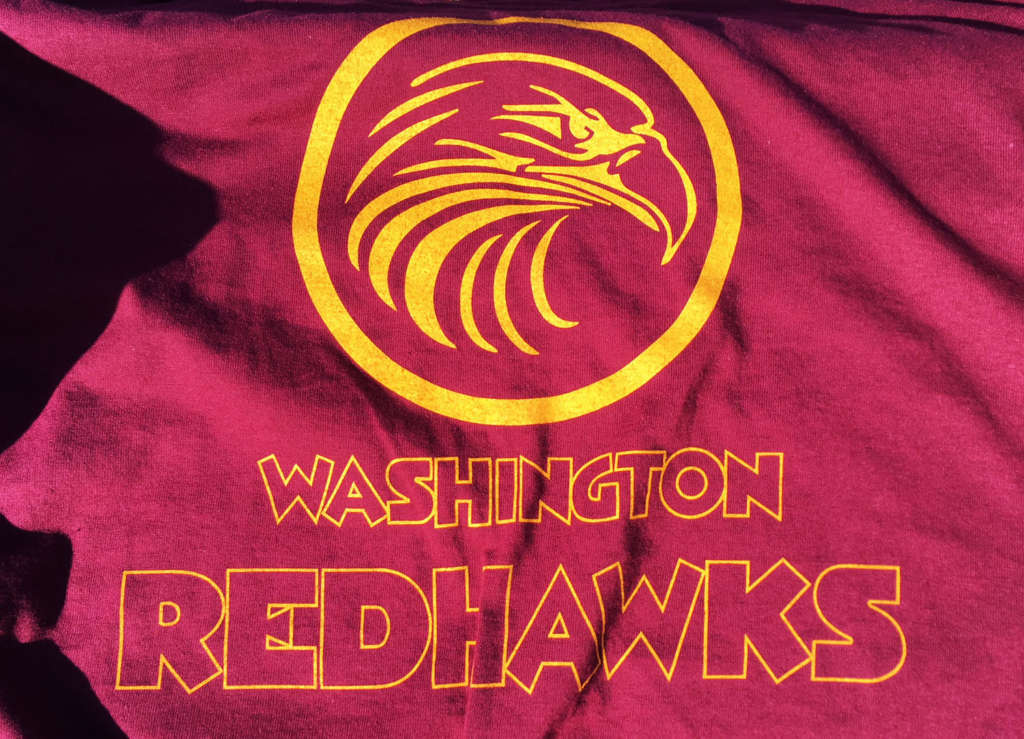
‘A complete disrespect for the fan base’
There is also the matter of the team’s name, once considered an immovable impediment to any relocation to the District.
“The mayor’s been absolutely clear that she is not a fan of the name of the team, and that would be one of the discussion items we would have with the team,” Falcicchio told WTOP.
However, he stopped short of saying that any relocation to D.C. would be contingent upon a name change. And while Bowser has been vocally opposed to the name in the past, that appears to have changed this August, when she went straight from a groundbreaking for the new athletic fields at RFK to the team’s annual Welcome Home Luncheon, where she sat at the head table with team owner Dan Snyder and enthusiastically used the name several times in public.
Objections to the team name was one of the primary reasons cited for the behind-the-scenes efforts to get something done before the House of Representatives shifted back to Democratic control this month. Falcicchio said there has been no reengaging with federal officials since the new Congress has been in session, which has been dominated by the partial government shutdown.
“With the new Congress, we’ll eventually restart those conversations about the future of the RFK campus,” he said. “But at this point, our focus with the new Congress, with the administration, and anyone, really, who’s listening who impacts the federal process, is to end the shutdown and get our workers back to work.”
While the public outcry over the team name has died out over the last couple seasons, Grosso is intent on ensuring it isn’t forgotten as part of any consideration when dealing with the team.
“I don’t think that we give enough attention to the role of the name and how it really impacts peoples’ psyche,” he said. “Not just the name, but the mascot, the use of it, the image on the helmet, all that stuff plays a really negative role in our society for people who are American Indians and are trying to move forward.”
A lifelong Washingtonian with relatives who still own season tickets, Grosso’s objections go beyond the nickname and imagery.
“I don’t support anything that has to do with Dan Snyder. For 20 years now, he’s taken that team and done nothing but use it to his own personal gain and shown a complete disrespect for the fan base, for the team’s history, for pretty much anything and everything,” he said.
Grosso was also Congresswoman Eleanor Holmes Norton’s Chief Counsel before his current position. That helps inform why his letter to Norton “voicing (his) unequivocal opposition to any effort to advance legislation that would allow construction of a new stadium for the Washington Professional Football Team here in the District of Columbia” might carry a little more sway than if it had come from someone else.
Allen is also not a fan of the team name. But simply changing it does not remedy the financial burden such a project puts on the city, nor does it address the many other ways he’d like to see the land used.
“Even if they change their name tomorrow, I don’t think it makes a difference,” said Allen. “Because an NFL stadium is a really bad idea.”

